As you approach menopause, you might wonder about the changes and how to handle the symptoms. Menopause is a natural process for women, happening between 45 and 55 years old.
Key Takeaways
- Menopause is a natural biological process.
Discussing treatment options with your doctor can help you manage your symptoms.
Understanding your body’s changes is key to maintaining your health.
Understanding Menopause in the Body
Understanding menopause is key for women going through this big change. Menopause is not just one event but a whole process with different stages.
You might feel many physical and emotional changes as you go through menopause.
The Hormonal Shift Behind Menopause
The main hormonal change in menopause is a drop in estrogen levels. This can cause symptoms like hot flashes, night sweats, and mood swings. Knowing about these hormonal changes helps manage menopause symptoms better.
As you deal with these changes, understanding the hormonal shifts is important. It helps you make smart choices for your health.
Physical Changes During Perimenopause
As you enter perimenopause, you may notice changes in your body. This phase is a transition to menopause. These changes are visible on your body. Skin spots all over your body, wrinkles and sagging.
.
Early Signs Your Body Is Entering Menopause
Changes in your menstrual cycle are often the first sign. You may experience irregular periods, which may be heavier or lighter. Hot flashes and night sweats may also occur. Insomnia and anxiety may also occur due to hormonal imbalances.
These symptoms are part of the physical changes that many women experience during perimenopause. Identifying them early can help you better manage your symptoms. Seeking medical help can help make this transition a smooth one.
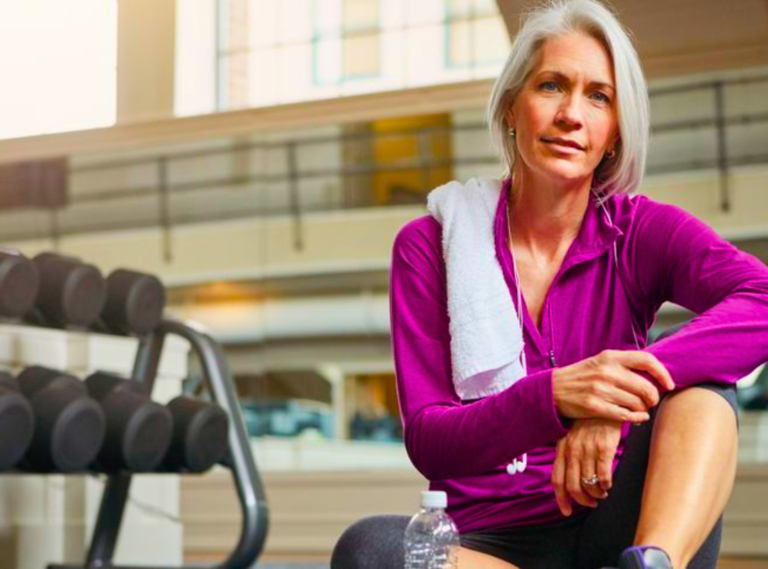
Timeline of Perimenopausal Changes
Knowing the details of these changes allows you to make smart, informed choices for your health and well-being during this period.
Common Physical Symptoms of Menopause
Menopause brings big changes to your body. These changes can affect your daily life. It is important to understand them in order to cope with your symptoms. You need to make daily changes to your routine. This starts with exercise, nutritional supplements, and a healthy diet.
Hot Flashes and Night Sweats
Hot flashes and night sweats are common symptoms. They can occur suddenly and are triggered by lifestyle changes such as exercise, diet, and drinking tea before bed. These changes can help you get a good night’s sleep..
Quick fixes include wearing layers of clothing and staying cool. Relaxation techniques, such as deep breathing, can also help. They can make it easier to cope with hot flashes and night sweats.

Weight Changes and Metabolic Shifts
Weight gain and metabolic changes are common during menopause. Hormonal changes and a slower metabolism can cause weight gain, usually in the abdominal area. Regular exercise and a balanced diet can help control weight, bone density, and blood flow to the muscles and brain, all of which help maintain health..
Vaginal and Urinary Health Concerns
Menopause also affects your vaginal and urinary health. Lower estrogen levels can cause vaginal dryness, making sex uncomfortable. You’re also more likely to get urinary tract infections due to loose tissue and the natural lubrication of those tissues.
To deal with vaginal dryness, try vaginal estrogen therapy, which is currently available in medicine. YOUR DECISION WITH YOUR DOCTOR. It replaces estrogen in the vagina to help with lubrication. Using lubricants during sex can also help. Eating well and exercising regularly can also help with vaginal health.
Preventing Urinary Tract Issues
To avoid urinary tract problems, keep your area clean and drink plenty of water. Cranberry products might help prevent UTIs. If you keep getting UTIs, talk to your doctor for advice.

Long-term Health Considerations After Menopause
After menopause, women face new health risks. These include osteoporosis and heart disease. A healthy lifestyle, like eating well and exercising, can help reduce these risks.
Osteoporosis is a major concern after menopause. Low estrogen levels can weaken bones. Eating foods rich in calcium and vitamin D, getting morning sunlight helps absorb vitamin D, and doing exercises that strengthen bones are essential. Strength training is also important for bone health.
Menopause can also affect the heart. The risk of heart disease increases due to reduced estrogen levels. Estrogen helps protect the heart, and its decline can harm blood vessels and cholesterol levels. By making changes to your diet and exercise routine, your heart won’t suffer.
Cognitive Effects and Brain Health
Some women may notice changes in memory and focus after menopause. Hormonal drops, like estrogen, might cause these changes.
“The menopause transition is a critical window for brain health, and lifestyle interventions during this period may have long-term benefits.”
Doing brain-stimulating activities and staying connected with others can help keep your brain healthy.
Lifestyle Strategies for Managing Menopausal Symptoms
Healthy lifestyle choices can help ease menopausal symptoms and boost your overall health. Menopause is a natural aging process, but its symptoms can be tough to handle. By focusing on your diet, exercise, and stress management, you can lessen these symptoms.
Eating a balanced diet with phytoestrogens can help with menopausal symptoms. Phytoestrogens are plant compounds that act like estrogen in the body.
Exercising regularly is essential to controlling menopause symptoms, maintaining an ideal weight and helping to reduce the risk of chronic diseases.
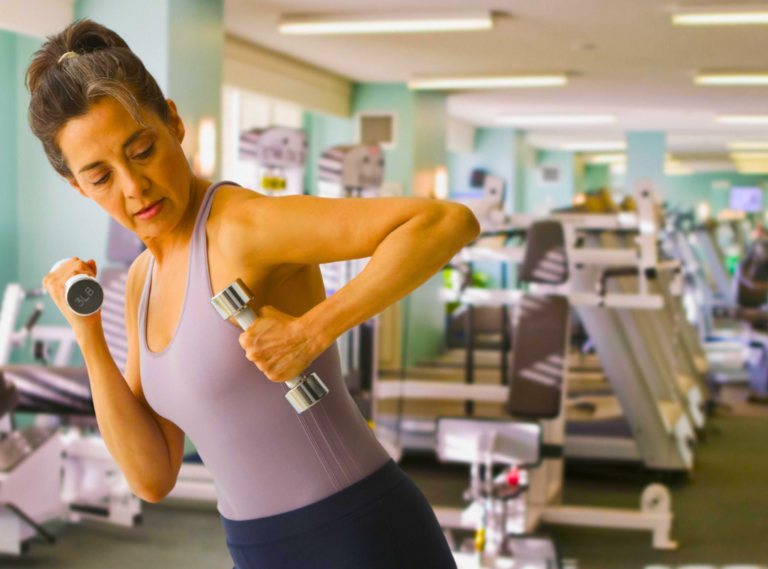
Cardio and Flexibility Exercises
Doing cardiovascular and flexibility exercises, such as yoga or swimming, or weight training, improves heart health and reduces stress. Blood circulation flows better to the bones, muscles and brain.
Conclusion: Embracing Your Changing Body
Menopause is a natural part of aging, bringing big changes to your body. As you go through this change, you can focus on your health and happiness. Knowing about the physical and emotional changes helps you manage symptoms and live better.
By accepting your changing body and living a healthy lifestyle, you can enjoy your postmenopausal years. This means making smart choices about what you eat, how you exercise, and how you handle stress. You can also look into medical and alternative ways to ease symptoms.
As you move forward, you’ll get to know your body better and what it needs. This lets you make choices that help your health and happiness. By doing this, you can confidently face the changes of menopause and thrive in this new chapter of your life.
FAQ
What is menopause, and what are its stages?
Menopause is when a woman stops having menstrual cycles. It has several stages, like perimenopause, menopause, and postmenopause. Perimenopause is the time before menopause, when hormone levels change and cause symptoms.
What are the common physical symptoms of menopause?
Menopause brings physical symptoms like hot flashes and night sweats. It can also cause sleep problems and weight changes. Knowing the causes and how to manage these symptoms can help.
How does menopause affect the reproductive system?
Menopause changes the reproductive system a lot. It affects menstrual cycles and vaginal and urinary health. Lower estrogen levels can lead to vaginal dryness and urinary infections.
What are the long-term health considerations after menopause?
After menopause, women face risks like osteoporosis and heart disease. They also might experience cognitive decline. Knowing these risks and taking preventive steps can help keep health in check.
How can lifestyle strategies help manage menopausal symptoms?
Healthy lifestyle choices can ease menopausal symptoms. Eating well, exercising regularly, and managing stress are key. These habits can improve overall health and well-being.
What are the options for managing menopausal symptoms?
Women have many ways to handle menopausal symptoms. Options include hormone therapy and natural remedies. Talking to a healthcare provider can help choose the best approach.
How can I manage hot flashes and night sweats during menopause?
To manage hot flashes and night sweats, try dressing in layers and avoiding triggers. Cooling techniques and hormone therapy can also help.
What are the effects of menopause on bone health?
Menopause can raise the risk of osteoporosis due to lower estrogen levels. Eating right, exercising, and taking preventive steps can help keep bones strong.
Can menopause affect cognitive function?
Yes, menopause might affect memory and cognitive function. A healthy lifestyle, including a balanced diet and exercise, can help keep the mind sharp.



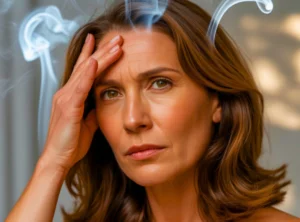

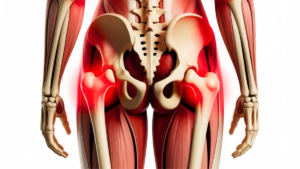
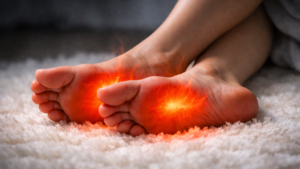
1 Comment
[…] Individualized care allows women to address the underlying causes rather than only masking symptoms. 👉 Related article: https://mariahchic.com/menopause/menopause-body […]